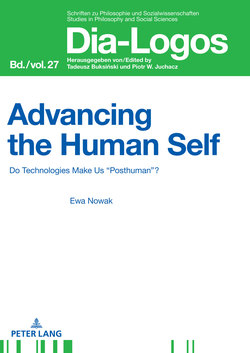Читать книгу Advancing the Human Self - Ewa Nowak - Страница 7
На сайте Литреса книга снята с продажи.
ОглавлениеTable of Contents
Introduction. Against the Stream: Searching for a Concept of the Self in Posthumanist Contexts
I. Kinds of the Self
1. Developmental Psychology Meets Phenomenological Psychology
2. The Embodied Self
3. The Narrative Self
3.1 An Outline of Narrative Theory
3.2 The Narrative Self in Humanist Clinical Contexts and Beyond Them
3.3 Between Narrative, Silence and Dysnarrativa
3.4 Literary Narratives on Becoming Posthuman
3.4.1 Franz Kafka’s Metamorphosis
3.4.2 T. R. Brown’s The Face in the Mirror
II. The Evolution of Body Concept
1. Objective Material Reality, Brute Body, Fleshness, Corporeity
2. Living Matter and Soma Organikon
3. Organic Identity and Individuality
4. Own Body
5. Experiential Body
6. “… Like Organs of One Single Intercorporeality”
7. Assembly, Hybrid, and Crosscorporeal Bodies
8. Hyperreal (Phantom) Body
9. Sacrosanctity, the Glorious Body, and the Body’s Revaluations (“das Leibapriori” in Traditional and Posttraditional Cultures)
III. Body Representationism Between Permanent Loss and Recovery of the Identity
1. Body Representation Then and Now
2. Body Representation Meets Technopoiesis (Hans Jonas Revisited)
3. Cognitive Sciences: Putting Together a Jigsaw
4. Disabled vs. Enhanced Body Representations
4.1 A Dysmorphic Body Image, Facial Allograft Transplantation and Personal Identity
4.2 A Disabled Body Image and Personal Identity
4.3 Enhanced Bodies, Neuroplasticity and Evolving Representation
4.4 Body Schema Plasticity and The Minded Body (Arnold Gehlen Revisited)
4.5 A Look from the Outside
IV. Psychosurgery. The Self As a Chronic Patient
1. What Is Neuroenhancement
2. Examples of Psycho- and Neurotropic Therapies’ Effect on the Memory and Identity
3. An Episodic Self-identity Turn?
4. Becoming Chronic Patients (and Needing Chronic Therapists vs. Comprehensive Human Enhancement)
V. Empowering the Agent, Not the Patient. Gadamer, Kępiński, Dąbrowski and Waldenfels vs. Technopoiesis
1. (Auto)therapeuin
2. Kazimierz Dąbrowski on “Positive Disintegration”
3. Hans-Georg Gadamer and Antoni Kępiński: A Hermeneutic Duet on the Theme of Autotherapy
4. Antoni Kępiński
5. Bernhard Waldenfels’ Phenomenological Tools of Autotherapy: Treating Our “Normal” vs. “Anomalous” Afflictions
VI. Artificial Intelligent Devices To Be Our Alter Egos? Facing Humans’ Most Distant Relatives
1. Our Artificial Alter Egos
2. Designing an Autonomous AI
3. What Kind of Ethics for AI? Follow-up Exploratory Reflections
4. A Categorical Imperative Test for Artificial Moral Agents?
5. “No One Really Knows How the Most Advanced Algorithms Do What They Do”
Summary
Bibliography
